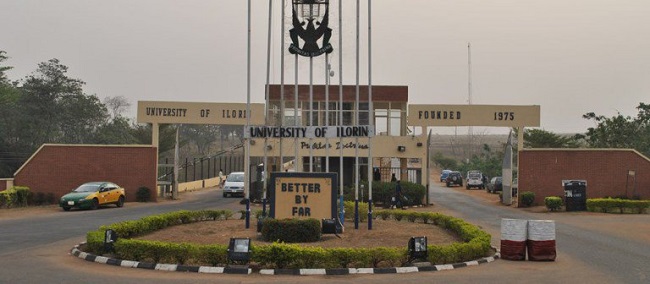The management of the University of Ilorin in Ilorin, Kwara State, said that it’s Biotechnology Centre has so far contributed 19 novel bacteria strains to the World Genomic Bank.

Prof. Matthew Kolawole, Director, Institute of Molecular Science and Biotechnology (IMSB), made this known in the 2018 Annual Report of Scientific Breakthroughs of the university made available to newsmen in Ilorin on Monday, January 7, 2019.
Prof. Kolawole explained that 19 additional novel biofloculating bacterial strains, which were isolated, had been submitted to the world genomic bank, otherwise known as the National Centre for Biotechnology Information, (NCBI), USA.
He said the development led to the issuance of the NCBI’s unique ascension numbers to the institute which was reported for the first time across the world.
He said the importance of this discovery might not be fully appreciated until it was juxtaposed with the water needs of Nigeria.
The Professor of Microbiology quoted the United Nations International Children’s Emergency Fund, (UNICEF), as saying that over 70 million Nigerians are without potable water
He said Nigeria requires $8 billion per annum to provide potable water for its citizens.
“The discovery of these strains and local production of water treatment composite materials which IMSB has been pioneering in the last one year moves us closer to solving the massive shortage of potable water.
“This outstanding feat has further cemented the institute’s goal of contributing to the genomic bank,” he said.
Kolawole said that the institution also recorded a significant breakthrough in biotechnological innovation, with the development of a “Two-way Trans-illuminator Viewing Documentation System.”
According to him, the instrument has been tested and confirmed to be very functional and effective in providing wider surface area for larger genetic material (DNA/RNA) samples with significant qualities that would address multifarious human needs in the field of medical bio-technology.
He noted that the discovery would facilitate the much-needed “portability, affordability, low voltage consumption, on-site view of standard DNA marker and two sources of illumination.”
He said it would further ensure better result presentation and recording with a third battery operated LED light that would help in improving health-care delivery.
Kolawole said that the serendipity had since been filed for patent at the National Office of NOTAPS through the University’s Centre for Laboratory to Product (LABTOP).
Other scientific breakthroughs attained by the university in 2018, according to Kolawole, are the isolation of Molecular Identification and Evaluation of Bioflocculant-producing Bacteria from Oyun, Asa and Agba Rivers in Ilorin.
He said the discovery would profer a wide range of indigenous bacteria with flocculants producing potentials and explore ways of improving bio-flocculating activities and corona virus OC43 and OC229 E/NL63, discovered for the first time in Nigeria as a cause of respiratory tract illness in children.
By Fatima Mohammed-Lawal
